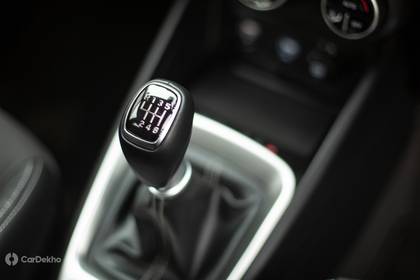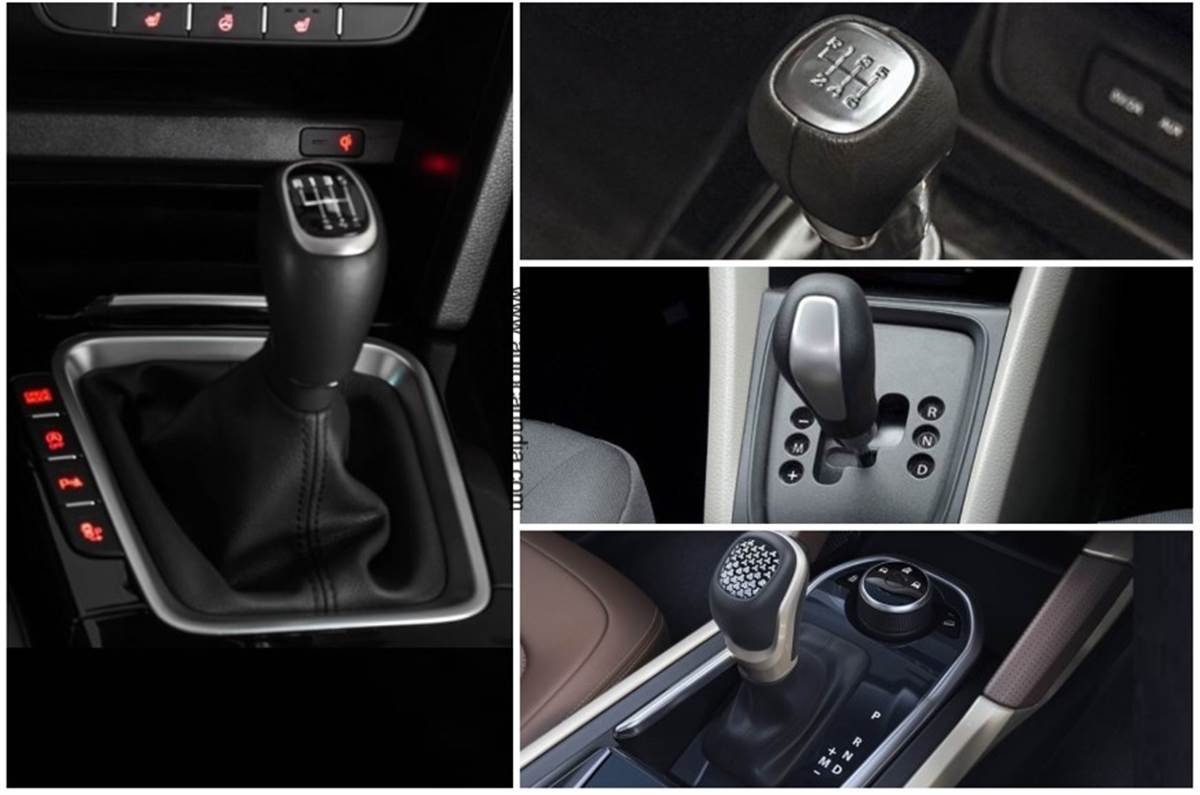
 © Bilal Ahmed Firfiray Hyundai intelligent Manual Transmission (iMT): Tech Explained
© Bilal Ahmed Firfiray Hyundai intelligent Manual Transmission (iMT): Tech Explained
Hyundai India has introduced a new ‘intelligent Manual Transmission’, or iMT for short, with the Venue. This first-of-its-kind gearbox technology offers the combination of a two-pedal setup of an automatic and manual shifting through a conventional gear lever. Let us take a deeper look into this revolutionary technology and see how it works.
The Korean carmaker debuted the iMT globally with the new-gen i20. In India, this six-speed gearbox tech will be paired to the 1.0-litre Kappa T-GDi turbo-petrol motor of the sub-four metre SUV. Unlike the typical manual transmission, the iMT doesn’t get a clutch pedal, instead, it has two pedals – accelerator and brake – like an automatic. And unlike an automatic, the iMT needs to be manually shifted by the driver. So it does away with the clutch pedal and its function is taken care of by a complex electronic unit.
How does iMT work?
To understand the working of the iMT, we’ll have to first know its components. First, there’s ‘transmission gear shift lever’ or TGS. It is joined by – intention sensor, hydraulic actuator, and an (electronic) transmission control unit. Other complex components of the circuit are – concentric slave cylinder, clutch tube, and the usual clutch and pressure plates. These components work together with a conventional manual gearbox mated to the engine.

- Transmission parts for IMT Tractors. We are the only authorized IMT parts dealer in the United States. IMTTractorParts is your IMT parts source for customers in North America and South America.
- HyundaiIndia has introduced a new ‘intelligent Manual Transmission’, or iMT for short, with the Venue. This first-of-its-kind gearbox technology offers the combination of a two-pedal setup of an.
Hyundai Imt Transmission

Your IMT parts source for customers in North & South America. AG-Industrial is the only authorized IMT parts dealer in the United States. This website features online ordering of IMT manuals and original replacement parts.
So imagine you are to drive a car equipped with iMT. Getting in, you’ll crank the engine as usual by pressing the engine-start button with brake lever depressed. To get going, you’ll need to slot the manual gearstick from Neutral to first-gear while depressing the brake lever (unlike in automatic where you slot the lever in D). On the move, if you need to upshift/downshift a gear, the TGS sends a signal to the transmission control unit (TCU) using the intention sensors. What the TCU does is, it engages the hydraulic actuator to generate hydraulic pressure. This hydraulic pressure is then directed to the slave cylinder through a clutch tube. Then the concentric slave cylinder uses this hydraulic pressure to operate the clutch and pressure plate, thereby engaging or disengaging the clutch. So all you have to do is change the gear lever as usual and the clutch action is carried out automatically without any hassle.

Advantages of iMT:
With the iMT, the driver is relieved of clutch operation especially in stop-go traffic in the city. Meanwhile, it still provides the driver with control of shifting gears at will, thus retaining the diving involvement of a manual transmission. Moreover, Hyundai claims that the iMT doesn’t ‘compromise on fuel efficiency and performance’ since it uses a conventional manual gearbox underneath.
At first, the iMT will surely feel unaccustomed to shift the gear lever manually without a clutch pedal action. But over time, we reckon it will be a technology which will offer the best of both worlds – the control of a manual and convenience of an automatic.
For more news,reviews,videos and information about cars, visit CarWale.com.
Corolla Imt Transmission
Check On-Road Prices | Find New Cars | Upcoming Cars | Compare Cars | Dealer Locator



